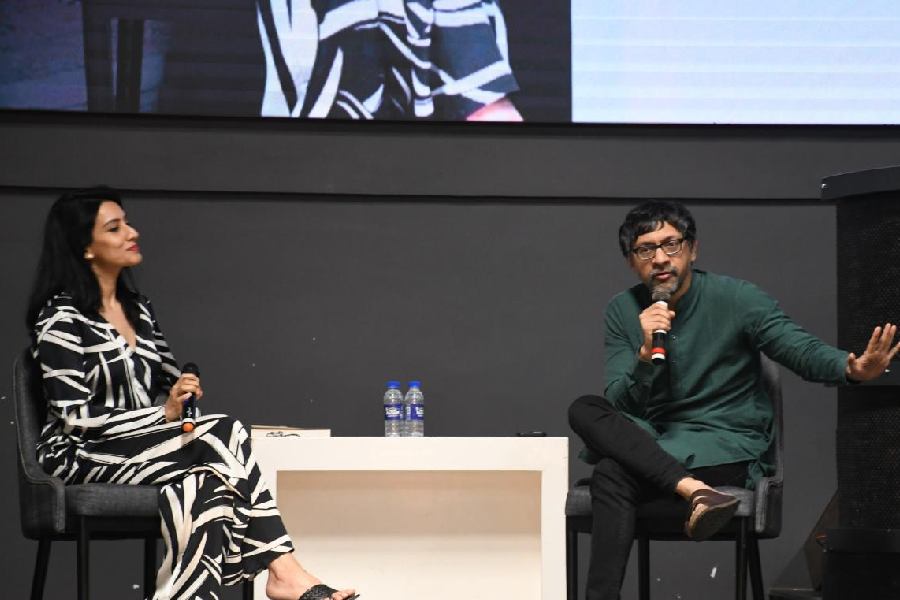Members of FICCI FLO Kolkata engaged in an interactive session on food and nutrition with author Krish Ashok in the event titled ‘Demystifying Food’, moderated by global educator and health and nutrition specialist Vidhi Beri, at Drunken Teddy on March 2. Krish Ashok began the conversation by sharing his trajectory that followed his interest in delving deep into food science. “It was not until the pandemic that it struck me that a lot of people were actually overthinking about food. The first generation of the Internet was a huge boon for people. For example, the most unrecognised person who essentially made Indian food accessible to everyone around the world is Tarla Dalal. However, the second generation of the Internet, which is social media, unfortunately, has done more harm than good. They will make a certain recipe more interesting for the viewers by saying something completely exaggerated about turmeric or something very silly,” said Ashok.
Ashok then explained a common misconception about consuming turmeric water and other practices that can lead to serious health and medical adversities. “Turmeric water does not prevent Covid. Nobody in our ancient past told you to drink turmeric water thrice a day. People generally fuss about Ayurveda. However, they fail to imply the specifications of its source. Modern people are fed with online misinformation rather than the actual information. The reason for this is fundamentally in the assumption that there are certain superfoods and super millets. There are actually no superfoods. There are super meals and super lifestyles,” said Ashok.
Juxtaposing science and cooking, Ashok, who has authored the book Masala Lab: The Science of Indian Cooking, shared profound insights on how the art of cooking became science. “Your kitchen is your free lab for life, but nobody told us this back in school. This is apparently because nobody really assumed that our grandmothers were scientists. By practice, they knew how much water ought to be added to rice or how much estimated salt is required in a dish, or how to keep the chicken moist and succulent. Rather than actually paying attention to the same, everyone is like let’s drink turmeric water three times a day,” said the author.
In the course of the discussion, Ashok busted some common myths about rice. Explaining the difference between white and brown rice and the common misconception associated with it, he explained: “Our problem is that we make rice the centre of our meal. In Western countries, protein is the centre of the meal and carbohydrates are on the side. It’s the reverse in a country like ours. The issue with rice per se is that, since you have polished it down, it has refined carbohydrates that will quickly spike your blood sugar, which again was fine if you were doing a lot of agricultural labour as we used to in the past. So, effectively you should not be eating as much rice as your ancestors did as they performed a lot more physical activity than us.”
Ashok shared significant knowledge about dairy products, spices and boosting immunity. He also made an interesting mention of how nostalgia bears a key part of flavours. “People like to say that food is fuel for me. That’s actually ridiculous. Food is absolute pleasure and joy. While we have a flavour apparatus, the colour of food signifies flavour as well. The critical part of flavours is nostalgia. Nostalgia, meaning when you eat in your mother’s kitchen, your brain is also remembering that specific combination in a way that makes it very hard for you to accept it in any other way,” said Ashok during his interactions with the guests.
